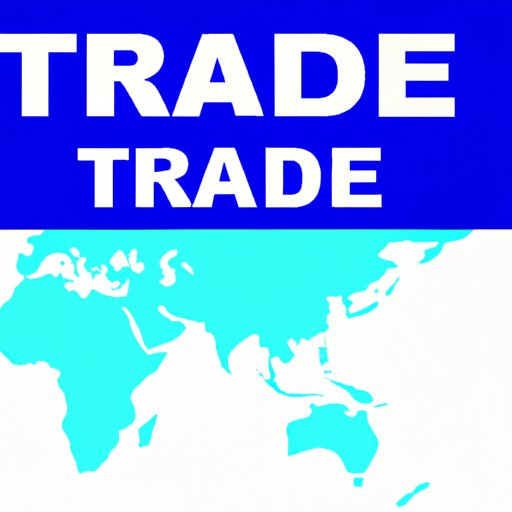
Introduction
In today’s globalized world, free trade zones are an increasingly popular way for businesses to boost their sales, access new markets, and enjoy other benefits such as streamlined customs procedures and reduced taxes. However, as with any economic development strategy, free trade zones have their pros and cons, and it is important for potential investors and policymakers alike to understand what they are and how they work.
This article aims to provide a beginner’s guide to free trade zones, including a clear definition of the term, an overview of how they function, and an exploration of some of the key issues and debates surrounding them.
What is a Free Trade Zone?
Put simply, a free trade zone is an area within a country or region where businesses can import, export, store, or manufacture goods and services without paying customs or other fees. Free trade zones can be created by governments to attract investment and boost economic growth, or by private businesses seeking to reduce costs and access new markets.
Within a free trade zone, businesses can take advantage of various benefits, such as lower taxes, streamlined procedures for trade and investment, and access to world-class infrastructure and facilities.
Free trade zones can be compared to other forms of economic zones, such as special economic zones, which may offer similar benefits but with different legal and regulatory frameworks.
Why Choose a Free Trade Zone?
For businesses looking to expand into new markets, free trade zones offer a number of advantages. Some of the most important include
- Reduced administrative and bureaucratic costs
- Access to new markets and customers
- Improved infrastructure and facilities
- Lower taxes and customs fees
For countries and regions that establish free trade zones, the benefits can be equally significant. By attracting investment from around the world, governments can create new jobs, grow their economies, and increase their share of global trade.
Free Trade Zones: Pros and Cons
While free trade zones offer many potential benefits, there are also several potential downsides that should be considered. Some of these include:
- Environmental concerns, such as pollution from factories and transport vehicles
- Social issues, such as labor exploitation and poor working conditions
- Loss of tax revenues for governments may result in insufficient funding for public services
Despite these potential drawbacks, many economists and policymakers argue that free trade zones are beneficial overall. They can create jobs, improve economic growth, and increase opportunities for international trade and investment.
The World’s Most Successful Free Trade Zones
There are many successful free trade zones around the world, each with its own unique characteristics and strengths. Some of the most successful free trade zones include:
- Dubai’s Jebel Ali Free Zone, which has played a key role in the city-state’s rise as an economic powerhouse in the Middle East
- Singapore’s Jurong Port, which has helped the country become a hub for global trade and logistics
- The Shannon Free Zone in Ireland, which has attracted major international companies such as Intel to set up manufacturing facilities and offices
These free trade zones have been successful not only in terms of attracting investment but also in creating jobs and driving economic growth in their respective regions.
The Future of Free Trade Zones in a Post-Pandemic World
The COVID-19 pandemic has had a major impact on global trade and investment, including free trade zones. While the long-term effects of the pandemic are still unclear, it is likely that some changes will continue to shape the future of free trade zones.
For example, the pandemic has accelerated the trend towards e-commerce and online sales, which may increase demand for free trade zones that cater to this market. Additionally, global supply chains are likely to be reconfigured as businesses seek to reduce risks and costs, which could lead to new opportunities for free trade zones that offer cost-effective options for storing and moving goods.
Free Trade Zones and International Law
Free trade zones are subject to various international laws and regulations, such as those set by the World Trade Organization (WTO). These regulations help to ensure that trade within free trade zones is fair and transparent, and that businesses are held to certain standards of quality and safety.
However, there are also several key legal issues and challenges associated with free trade zones. These include intellectual property rights, labor standards, and environmental regulations. Policymakers and businesses must work together to address these issues in a way that benefits everyone involved.
Conclusion
In conclusion, free trade zones are an increasingly important part of the global economy, offering many benefits for businesses and countries alike. However, it is important to understand the pros and cons of free trade zones, as well as the legal and regulatory challenges that they may present. By considering these issues carefully, businesses and policymakers can make informed decisions about whether free trade zones are the right choice for them.
If you are interested in learning more about free trade zones, we encourage you to explore additional resources and seek out expert advice to help you make informed decisions about your business or investment strategy.




